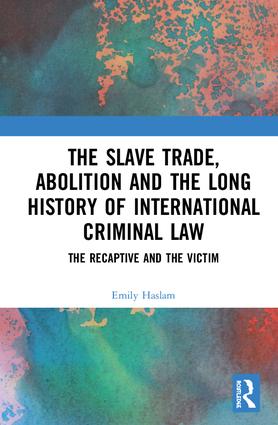A new book by Kent international law expert Dr Emily Haslam offers a close and critical examination of litigation that arose from British efforts to capture slave ships in the nineteenth century.
More broadly, The Slave Trade, Abolition and the Long History of International Criminal Law, published by Routledge, shows how the slave trade and abolition has influenced (and continues to influence) international criminal law in multiple ways.
Dr Haslam’s archival-based research explores the legal construction of so-called ‘recaptives’ (slaves found on board captured slave ships). She argues that, notwithstanding its promise of freedom, the law actually constructed recaptives restrictively. In particular, it focused on questions of intervention rather than recaptives’ rights. At the same time it shows how a critical reading of the archive reveals that recaptives contributed to litigation in important, but hitherto largely unrecognized, ways.
Efforts to deliver justice through international criminal law continue to face considerable challenges and raise testing questions about the construction – and alternative construction – of victims. By inscribing the recaptive in international criminal legal history, the book offers an original contribution to these contentious issues and a reflection on critical international criminal legal history writing and its accompanying methodological and political choices.
Dr Haslam is a Senior Lecturer in International Law at Kent Law School. Her research interests lie in the field of international criminal law, international legal history and civil society. She has authored numerous book chapters and articles in this field and has extensive experience teaching international law, international criminal law and transnational criminal law.

